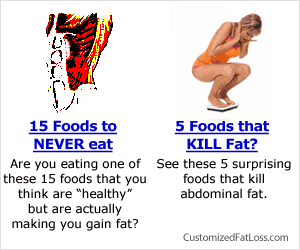Creatine And Diet
To support muscle growth, creatine works best with a nutritious diet that supplies ample calories. Figure out your calorie needs, based on your present body weight. Here are some examples: To build muscle, if you’re a man, eat 23 to 27 calories per pound of body weight a day. So if you weigh 165, your caloric range would be 3,795 to 4,455. If you’re not yet within range, add calories gradually.
If you’re a woman who wants to gain muscle, eat 20 calories per pound of body weight a day. If you weigh 120, you should eat 2,400 calories a day to build muscle.
As you gain muscle, recalculate your calories. Most of your additional calories should come from carbohydrates in the form of natural, unprocessed food and liquid carbohydrate supplements or sports drinks. Garbs supply the energy to drive the muscle-building process and are critical for replenishing lost glycogen following a hard workout. Approximately 60 to 65 percent of your total daily calories should come from carbohydrates when supplementing with creatine.
Protein intake is critical, too, especially for the repair and construction of muscle tissue following exercise. If you lift weights as part of your muscle-building program, you definitely need more protein. About 15 to 20 percent of total daily calories should come from lean protein. Another way to figure appropriate protein intake is 0.7 gram of protein per pound of body weight daily (slightly more about 0.9 gram per pound of body weight if you do aerobics, too). Thus, a strength-training man weighing 165 pounds should eat about 115 grams of protein daily; a 120-pound woman, about 84 grams.
Antioxidants such as beta carotene, vitamin C, vitamin E, and selenium are important, too, since they appear to help tissues recover better and regenerate more quickly following exercise. And the need for B-complex vitamins increases -with exercise. A good supplement program for strength-training exercisers is as follows: Antioxidants (daily): 200 to 300 mg of vitamin C, 100 to 400IU of vitamin E, 10,000 to 20,00 IU of beta carotene, up to 50 meg of selenium.
B-complex vitamins: For every 1,000 calories of carbs you consume daily, you need 0.5 mg of thiamin; 0.6 mg of riboflavin; and 6.6 mg of niacin. (An antioxidant multiple containing B-complex vitamins should help meet these needs.)
Creatine monohydrate is nontoxic, and studies have been unable to find any negative side effects from its usage. But if you take too much at once, you can experience stomach upset.
Creatine was in the news a couple of years ago, following the tragic deaths of three college wrestlers who tried to shed weight rapidly in order to qualify for their weight classes. One of the wrestlers, who attempted to lose 12 pounds in a single day, suffered kidney failure and heart malfunction while wearing a rubber suit during a 2-hour workout in 92-degree temperatures. His body contained high concentrations of creatinine, a component of urine that is a breakdown product of creatine. The finding prompted an investigation by the FDA into the effects of supplemental creatine. The FDA concluded that creatine was not a factor in the deaths.
So what led to this tragedy?
The deaths were most likely caused by the wrestlers’ dangerous make-weight practices, including severe dehydration and self-imposed sweating. These practices can create a dangerous condition similar to heat stroke, which elevates the level of the creatine breakdown product creatinine in the body.
Creatine has also been associated with cramping and muscle spasms, according to some athletes’ trainers, although they can’t prove the problems result from the supplementation. Experts feel that these conditions are probably caused by insufficient water intake. Creatine tends to pull water from other parts of the body into cells, so it’s important to drink an additional 8 ounces of water daily over and above your normal 8 to 10 cups a day.
Creatine supplementation is ill-advised if you have preexisting severe kidney disease (for example, renal dialysis or kidney transplant patients). Thus, people with kidney disease should not supplement with creatine. Always consult your physician before supplementing.
Georgiy Kharchenko – ephedra fat burner, fastin phenylethylamine, cheap lipodrene






-SMALL.gif)
